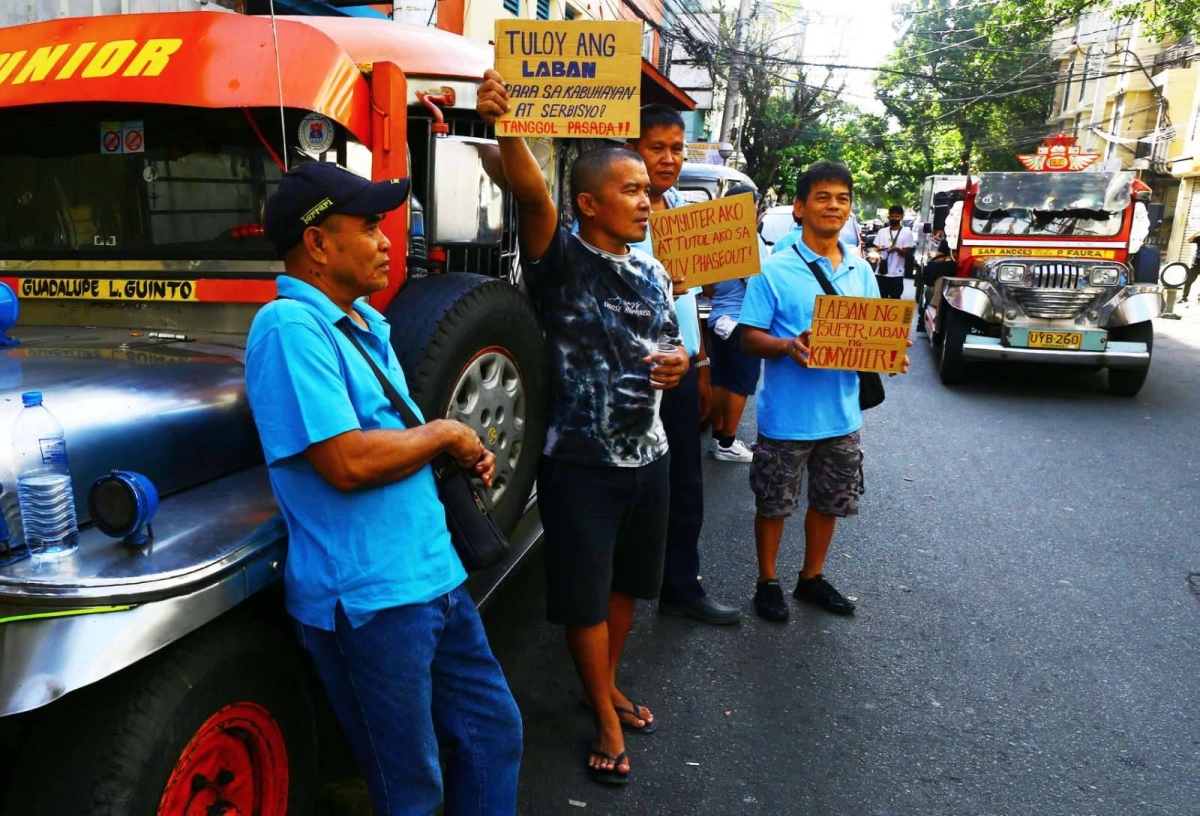In the bustling streets of the Philippines, a unique form of public transportation called the jeepney has become an iconic symbol of the country’s culture. These colorful and vibrant vehicles, originally made from repurposed US military jeeps after World War II, have been a mainstay in Filipino transportation for decades. However, the traditional jeepney system has faced numerous challenges, prompting the need for change and modernization.
One such change is the emergence of jeepney cooperatives, where ownership is shared among members. Leonard Bautista, the chairman of the Pagunova Transport and Multi-Purpose Service Cooperative, explains that their organization and its members collectively own their fleet of vehicles. “All of us own the units and the business that we started … we are all businessmen,” Bautista proudly states.
The cooperative model allows for a more equitable distribution of earnings. Instead of individual operators or drivers shouldering the burden of purchasing the units, the cooperative’s income is utilized to cover these costs. Bautista highlights the advantage of this approach, emphasizing that the cooperative only needs to earn approximately P1,000 per day to sustain the payments. This system mirrors the traditional jeepney practice of setting a daily boundary or quota for drivers, ensuring that the cooperative can generate sufficient revenue to meet its financial obligations.
Transitioning from the traditional jeepney system to the modernized version, as mandated by the government’s Public Utility Vehicle Modernization Program (PUVMP), has not been without its challenges. Bautista acknowledges the initial resistance from former operators who questioned the need for consolidation before the PUVMP had even begun. However, he emphasizes that their cooperative took the initiative to modernize in 2019 because they wanted to secure their livelihoods.
The cooperative’s efforts to bring operators on board have been largely successful, with many eventually joining their ranks. Bautista recognizes that the traditional system often limits earning potential. While some operators may earn between P7,000 to P10,000 per month, this income still feels insufficient. Similarly, traditional jeepney drivers typically earn only P600 to P800 per day, and even with long hours, they may only reach P1,500 on a good day. Bautista contrasts this with the cooperative’s drivers, who, working from 4 a.m. to 2 p.m., can earn between P1,200 to P1,400 per day if they meet the P8,000 quota.
Under the cooperative model, drivers have the opportunity to earn more without compromising their income security. Bautista explains that their system incorporates a quota-based approach, ensuring that drivers receive at least the minimum wage. When earnings are low, drivers are guaranteed the minimum wage, and when they strive for higher earnings, they must attract more passengers. This system provides a fair and transparent mechanism for drivers to increase their income based on their performance.
The cooperative ownership model in the jeepney industry offers numerous advantages. It not only promotes a sense of shared responsibility and empowerment among members but also ensures a more sustainable and equitable distribution of earnings. By transitioning to modernized vehicles and adopting a quota-based system, the cooperative provides drivers with the opportunity to earn a decent income while maintaining the cultural heritage of the iconic jeepney. As the cooperative chairman Leonard Bautista aptly puts it, “We wanted to earn a living, and the cooperative model has allowed us to do just that.”
In conclusion, the jeepney cooperatives in the Philippines have demonstrated the potential for positive change in the transportation industry. Through shared ownership, these cooperatives have created a more sustainable and fair system that benefits both operators and drivers. As the country continues to modernize its public transportation, the cooperative model serves as an inspiration for other industries to foster collaboration and empower their workforce.







